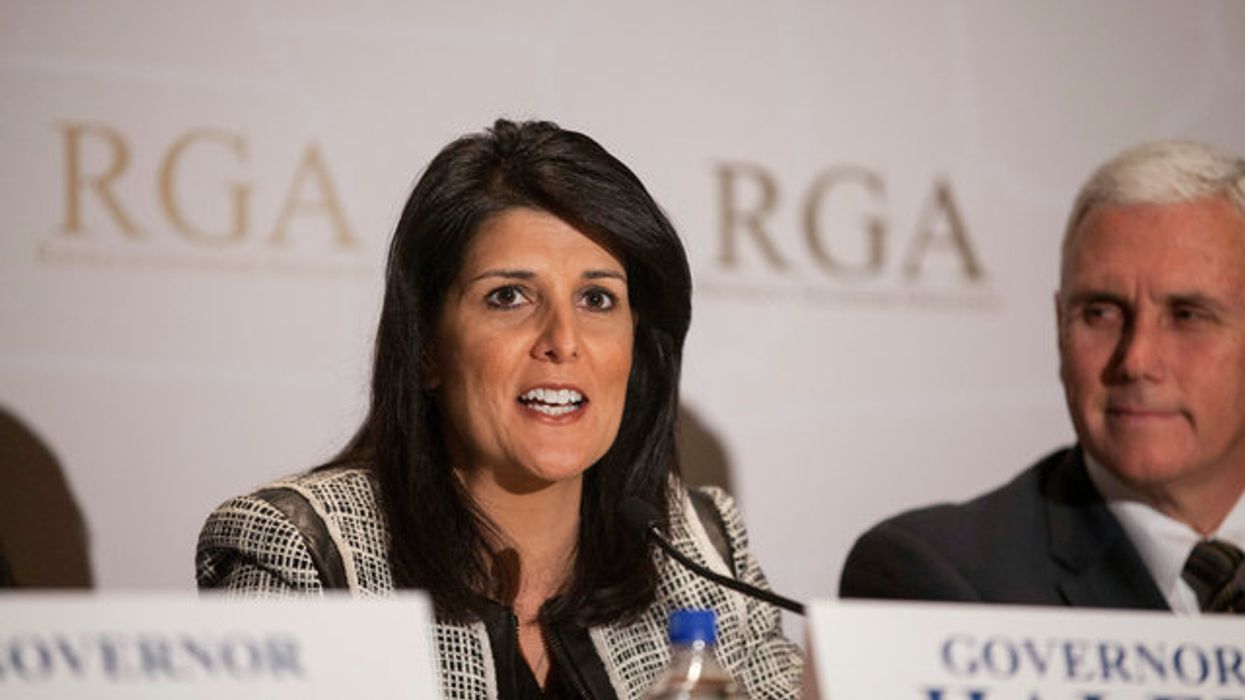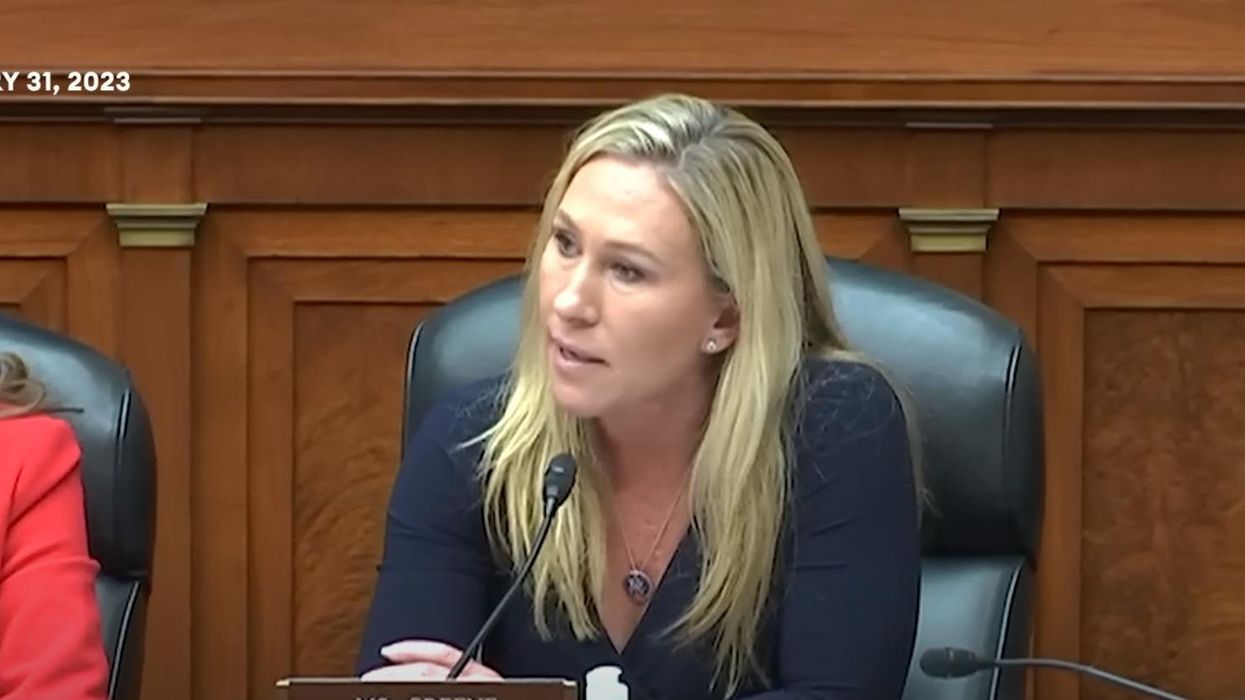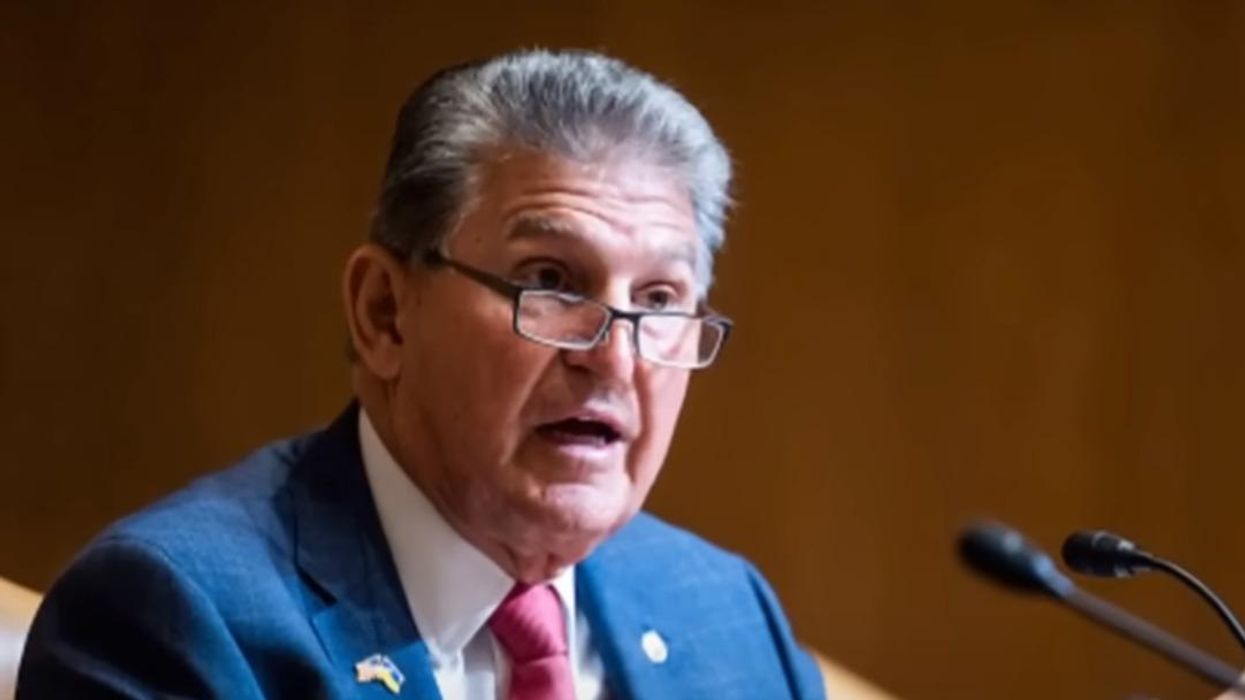Poll Shows GOP Is Running On Nothing But Immigration Fears
Immigration shot to the top of Gallup's February polling on what Americans say are the country's most vexing problems, finishing at 28 percent, an eight-percentage-point uptick in a single month.
Here were February's top five issues, compared with January's:
1. Immigration: 28 percent (+8 points from January)
2. Government: 20 percent (-1 point)
3. Economy in general: 12 percent (unchanged)
4. Inflation: 11percent (-2 points)
5. Poverty/Hunger/Homelessness: 6 percent (+1 point)
The main driver of immigration’s rise to the top of voter concerns was Republicans, 57 percent of whom name immigration as the country’s top problem—a 20-point surge since January.
Gallup notes that survey, taken from February 1 to February 20, encompassed a timeframe when the bipartisan border deal was announced but ultimately failed to pass the Senate after Donald Trump urged congressional Republicans to kill it.
But Republicans have also recently been hammering the issue with hard ad dollars, according to Zachary Mueller, senior research director at the immigration advocacy group America's Voice. Mueller told Daily Kos that in just the first two months of 2024, Republican-aligned campaigns have already run 445 unique immigration ads totaling $62.6 million, according to AdImpact data.
"What those Gallup numbers tell me is that there is a core of the GOP base that has bought into the bigoted fiction that immigration is an existential threat to the nation," Mueller said, calling the Republican advertising a "xenophobic feedback loop."
Gallup's list of 15 items national priorities was notable for several other reasons, including the fact that concerns about inflation (No. 4) and the economy (No. 3) continue to recede in relation to other issues. In October 2022, just before midterm Election Day, 46 oercent of Americans mentioned various economic issues as the nation's most important problems. In February 2024, just 30 percent of respondents cited economic issues as their chief concern, so voters’ urgency around economic issues have receded considerably over the last year and a half.
In addition, the latest Gallup survey shows that just three percent of respondents named the federal budget deficit as a problem—so that GOP talking point is effectively dead, even among Republican voters.
At this point in the cycle, immigration is effectively all Republicans have left to run on. And due to their heavy spending, the issue of immigration and the influx of migrants crossing the border is now tops among Americans for the first time since July 2019, when it hit 27 percent
That's exactly why both President Joe Biden and Donald Trump went to Texas on Thursday to stage dueling press conferences.
During the visit, Biden sought to play offense on the issue, saying congressional Republicans had tanked the border deal for "rank partisan politics" and challenging them to "show a little spine."
While it's true that voters typically trust Republicans more on the issue of immigration, being a solutions-oriented pragmatist on the matter recently helped secure New York Democrat Tom Suozzi an 8-point win over his Republican rival in the special election for New York’s Third Congressional District. Suozzi called for a border shutdown while also emphasizing providing law-abiding immigrants with a pathway to citizenship.
And if Biden hopes to broaden his coalition by appealing to Nikki Haley supporters on the matter, South Carolina exit polls showed her winning 70 percent of Republican primary voters who say most undocumented immigrants should be given the opportunity to apply for legal status.
The split-screen Biden-Trump events at the border were just the opening salvo on an issue that Republicans will surely drive home through November. In 2022, Mueller said Republican-aligned campaigns ran 733 unique immigration ads totaling $233.4 million, according to AdImpact.
This year, Mueller expects Republicans to make another "massive investment" in stoking the issue.
"Despite nativist attacks failing to deliver at the ballot box in cycle after cycle, Republicans, with Trump still leading their party, are not going to switch tactics," he said.
And even if Republicans wanted to switch tactics, what would they switch to?
Reprinted with permission from Daily Kos.




